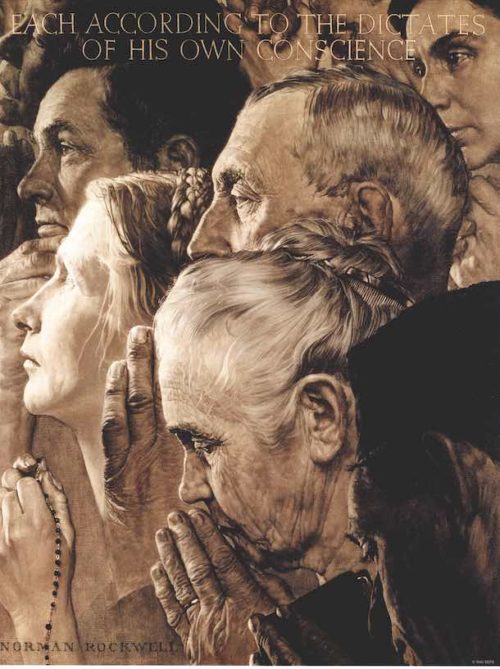
In 1943, the Post commissioned four writers to craft an essay to accompany each of Norman Rockwell’s Four Freedoms paintings, which had quickly come to represent America’s moral imperative during World War II. You can read the other three essays here.
Freedom of Worship
Originally published February 27, 1943
Down in the valley below the hill where I spend my summers is a little white church whose steeple has been my guiding goal in many a pleasant walk.
Often, as I passed the door on weekdays when all was silent there, I wished that I might enter, sit quietly in one of the empty pews, and feel more deeply the wonder and the longing that had built such chapels — temples and mosques and great cathedrals — everywhere on the earth.
Man differs from the animal in two things: He laughs, and he prays. Perhaps the animal laughs when he plays, and prays when he begs or mourns; we shall never know any soul but our own, and never that. But the mark of man is that he beats his head against the riddle of life, knows his infinite weakness of body and mind, lifts up his heart to a hidden presence and power, and finds in his faith a beacon of heartening hope, a pillar of strength for his fragile decency.
These men of the fields, coming from afar in the uncomfortable finery of a Sabbath morn, greeting one another with bluff cordiality, entering to worship their God in their own fashion — I think, sometimes, that they know more than I shall ever find in all my books. They have no words to tell me what they know, but that is because religion, like music, lives in a world beyond words, or thoughts, or things. They have felt the mystery of consciousness within themselves, and will not say that they are machines. They have seen the growth of the soil and the child, they have stood in awe amid the swelling fields, in the humming and teeming woods, and they have sensed in every cell and atom the same creative power that wells up in their own striving and fulfillment. Their unmoved faces conceal a silent thankfulness for the rich increase of summer, the mortal loveliness of autumn and the gay resurrection of the spring. They have watched patiently the movement of the stars, and found in them a majestic order so harmoniously regular that our ears would hear its music were it not eternal. Their tired eyes have known the ineffable splendor of earth and sky, even in tempest, terror, and destruction; and they have never doubted that in this beauty some sense and meaning dwell. They have seen death, and reached beyond it with their hope.
And so they worship. The poetry of their ritual redeems the prose of their daily toil; the prayers they pray are secret summonses to their better selves; the songs they sing are shouts of joy in their refreshened strength. The commandments they receive, through which they can live with one another in order and peace, come to them as the imperatives of an inescapable deity, not as the edicts of questionable men. Through these commands they are made part of a divine drama, and their harassed lives take on a scope and dignity that cannot be canceled out by death.
This little church is the first and final symbol of America. For men came across the sea not merely to find new soil for their plows but to win freedom for their souls, to think and speak and worship as they would. This is the freedom men value most of all; for this they have borne countless persecutions and fought more bravely than for food or gold. These men coming out of their chapel — what is the finest thing about them, next to their undiscourageable life? It is that they do not demand that others should worship as they do, or even that others should worship at all. In that waving valley are some who have not come to this service. It is not held against them; mutely these worshipers understand that faith takes many forms, and that men name with diverse words the hope that in their hearts is one.
It is astonishing and inspiring that after all the bloodshed of history, this land should house in fellowship a hundred religions and a hundred doubts. This is with us an already ancient heritage; and because we knew such freedom of worship from our birth, we took it for granted and expected it of all mature men. Until yesterday, the whole civilized world seemed secure in that liberty.
But now suddenly, through some paranoiac mania of racial superiority, or some obscene sadism of political strategy, persecution is renewed, and men are commanded to render unto Caesar the things that are Caesar’s, and unto Caesar the things that are God’s. The Japanese, who once made all things beautiful, begin to exclude from their realm every faith but the childish belief in the divinity of their emperor. The Italians, who twice littered their peninsula with genius, are compelled to oppress a handful of hunted men. The French, once honored in every land for civilization and courtesy, hand over desolate refugees to the coldest murderers that history has ever known. The Germans, who once made the world their debtors in science, scholarship, philosophy, and music, are prodded into one of the bitterest persecutions in all the annals of savagery by men who seem to delight in human misery, who openly pledge themselves to destroy Christianity, who seem resolved to leave their people no religion but war, and no God but the state.
It is incredible that such reactionary madness can express the mind and heart of an adult nation. A man’s dealings with his God should be a sacred thing, inviolable by any potentate. No ruler has yet existed who was wise enough to instruct a saint; and a good man who is not great is a hundred times more precious than a great man who is not good. Therefore, when we denounce the imprisonment of the heroic Niemoller, the silencing of the brave Faulhaber, we are defending the freedom of the German people as well as of the human spirit everywhere. When we yield our sons to war, it is in the trust that their sacrifice will bring to us and our allies no inch of alien soil, no selfish monopoly of the world’s resources or trade, but only the privilege of winning for all peoples the most precious gifts in the orbit of life — freedom of body and soul, of movement and enterprise, of thought and utterance, of faith and worship, of hope and charity, of a humane fellowship with all men.
If our sons and brothers accomplish this, if by their toil and suffering they can carry to all mankind the boon and stimulus of an ordered liberty, it will be an achievement beside which all the triumphs of Alexander, Caesar, and Napoleon will be a little thing. To that purpose they are offering their youth and their blood. To that purpose and to them we others, regretting that we cannot stand beside them, dedicate the remainder of our lives.
Become a Saturday Evening Post member and enjoy unlimited access. Subscribe now
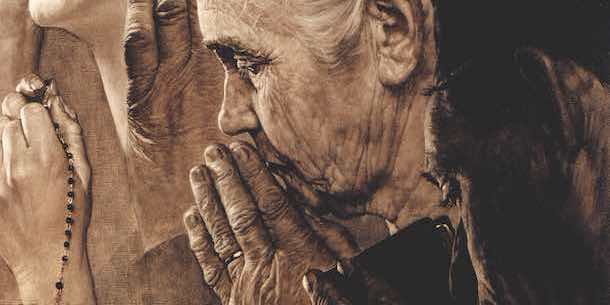
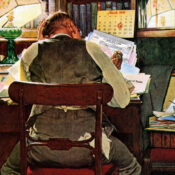
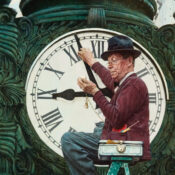
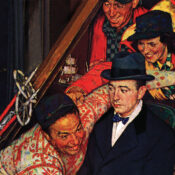
Comments
If only this wisdom lived on today. God Help Us All, as the Atheist cabal moves forward to legislate the antithesis of the third of the four freedoms of President Roosevelt enshrined in portrait and prose.